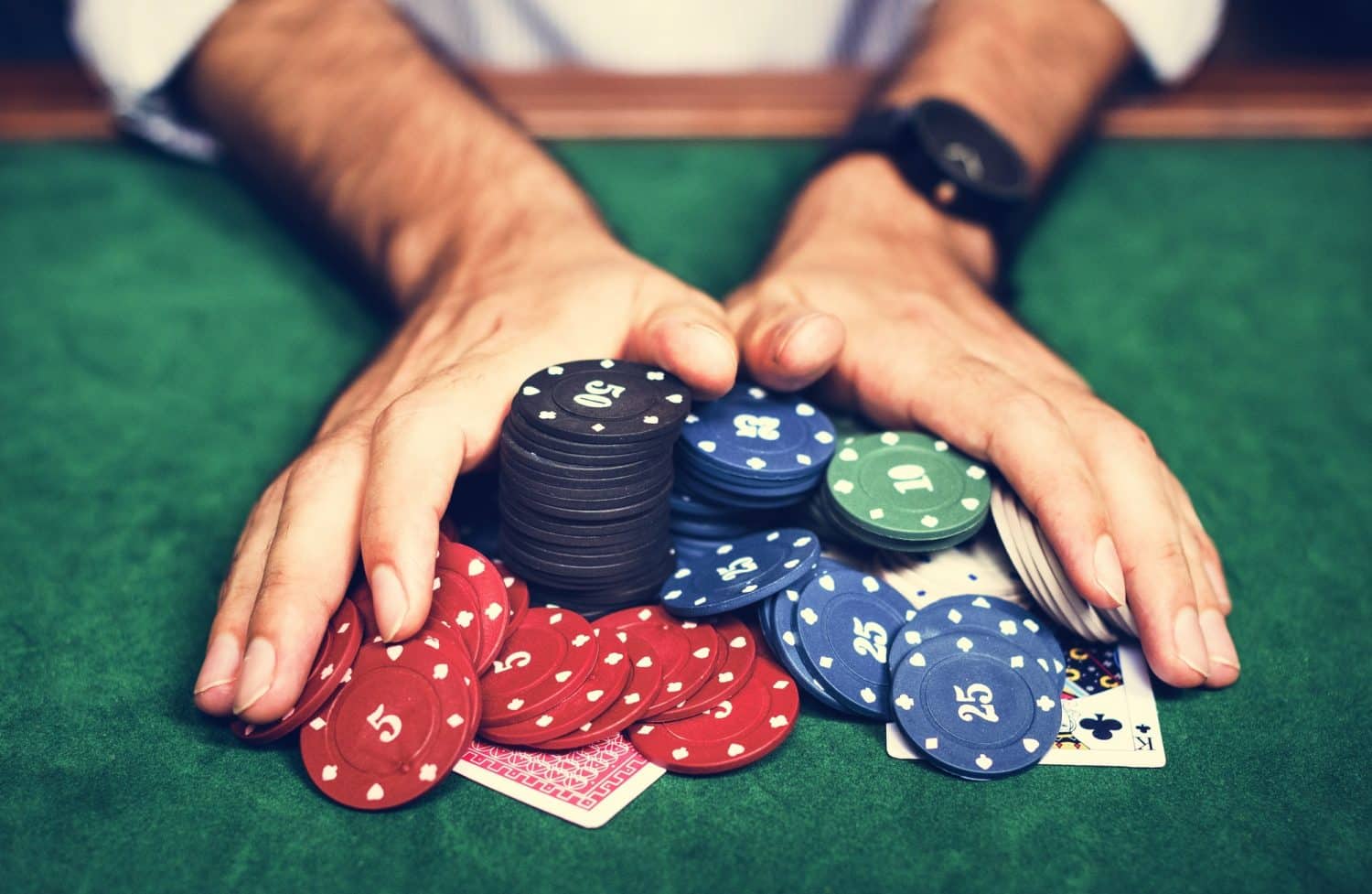
Often, when we think of addiction, we think of substance abuse. Drugs and alcohol come with many physical symptoms, but not all addictions are so obvious. Sometimes what looks like a hobby can actually be something that is tearing our lives apart.
One of these more obscure forms of addiction is gambling. There are different types of gambling addictions, which we’ll detail below, but first, it’s important to understand this type of disease.
More importantly, how do you decipher the difference between a habit and an addiction?
How is Gambling an Addiction?
Just because gambling doesn’t directly cause physical harm doesn’t mean it can’t be an addiction. Addiction, by definition, is a compulsive need to engage in a certain activity in spite of its harmful consequences.
Control is no longer a stable element in one’s relationship with the substance or activity he or she is addicted to because the “need” has outweighed the will to deny it.
People often embrace gambling because it provides a “solution” or an escape from a negative aspect of the person’s life. It could be the need for quick money or simply a craving for the high that comes with high stakes.
Yet when one’s need to gamble becomes an uncontrollable impulse, it enters the realm of addiction. Symptoms of this stage include:
- Difficulty controlling one’s gambling habits
- Feeling the need to hide one’s gambling activities from others
- Engaging in gambling even when one cannot afford to do so
- Friends and family notice and become concerned with one’s gambling activity
- The inability to cease gambling
- Feelings of anxiety at the thought of not being able to gamble
Individuals who have grown dependent upon gambling often require intervention and/or assistance in order to break the cycle and get their life on track. This can be anything from joining a support group to participating in a rehabilitation program.
The Types of Gambling Explained
Gambling comes in many forms. According to Dr. Robert L. Custer, there are 6 different types of gambling addictions. Each one has its own level of risk. However, it’s important to note that not everyone who falls into one of these categories is addicted to the activity.
For example, the professional gambler may make the risky activity a full-time gig, but that doesn’t mean he can’t stop at any time. To be addicted, one must exhibit the symptoms of addiction that we listed above.
The Professional Gambler
Professional gamblers are just that: full-time gamblers who make their living off of their winnings. Their skill allows them to mitigate their risk to the point of walking out with a profit.
However, in order to have a successful “career” in the gambling field, one must have a strong level of patience, awareness, and control. He or she has to wait for and anticipate a profitable bet and know when to stop even if they are on a winning streak.
Because of this, the professional gambler is considered at a low risk for addiction. Yet it doesn’t mean an addiction cannot be formed. If he or she begins to lose the control that made their skills so profitable then that risk becomes elevated.
The Antisocial Personality Gambler
Antisocial personality gamblers may also make a living in the gambling scene. However, they are very different from the professional gambler. Many actually have an antisocial personality.
They also have a tendency to participate in illegal forms of gambling. This includes engaging in fixed bets or using marked cards and loaded dice. Most individuals who fall into this category have a history of illegal activity.
They tend to be described as manipulative, irritable, deceitful, and aggressive. While these people may use addiction as a defense if caught in the act, they typically have a personality disorder that is reflected in their addictive habit rather than the addiction causing their quirks.
The Casual Social Gambler
Casual social gamblers are rarely addicts. They engage in gambling as a form of recreation, whether it’s in a social setting or for their own personal entertainment. These individuals balance their gambling habits well.
Their gambling will not interfere with more important aspects of life, including their financial situation, family relationships, or career. You likely know a casual social gambler, such as the friend who sometimes buys scratch-off cards and lottery tickets or a neighbor who holds annual bets on the Super Bowl.
This individual is at a low risk for becoming addicted, but it could happen if the hobby becomes a crutch for dealing with something traumatic in the person’s life.
The Serious Social Gambler
Serious social gamblers take their engagement in gambling further than the casual individual. He or she gambles on a regular basis. However, they aren’t considered addicts.
In spite of their love for gambling, a serious social gambler will keep the hobby secondary to more important aspects of life, including financial stability, family, and professional obligations.
This level of control places them at a higher risk of addiction than the casual social gambler, but it would still take a traumatic event or massive win to sway them into making gambling a priority.
The Relief and Escape Gambler
Relief and escape gamblers are typically on the verge of or are becoming addictive to the activity. They use gambling as an escape from situations or feelings in life that they feel incapable of facing.
This includes loneliness, depression, anger, anxiety, or even boredom. While they may still have some level of control over their gambling habits, the line may blur if pushed further into a state of vulnerability.
Any negative element in life could be enough to do this, from a stressful relationship or loss to simply a bad day at work.
The Compulsive-Pathological Gambler
Compulsive-Pathological gamblers are completely addicted to their gambling habits. Control is no longer within their grasp. These people are described as having a pathological disorder.
These people are emotionally tumultuous. Wins and losses will influence their feelings of self-worth and they will struggle with guilt over their inability to control their habits.
Many compulsive-pathological gamblers develop other addictions alongside gambling as they try to cope with their remorse. They spiral further into self-destructive behaviors as a result.
The Way to Recover
The good news is that there is hope for those suffering from all types of gambling. Your addiction doesn’t have to own you. There is a path to recovery, and that road starts with asking for help.
Reach out to us today to let us know what you’re struggling with so we can connect you with the resources you need to turn things around. One of our knowledgeable and friendly staff will respond shortly after your submission to help you start a new, better chapter in life.





